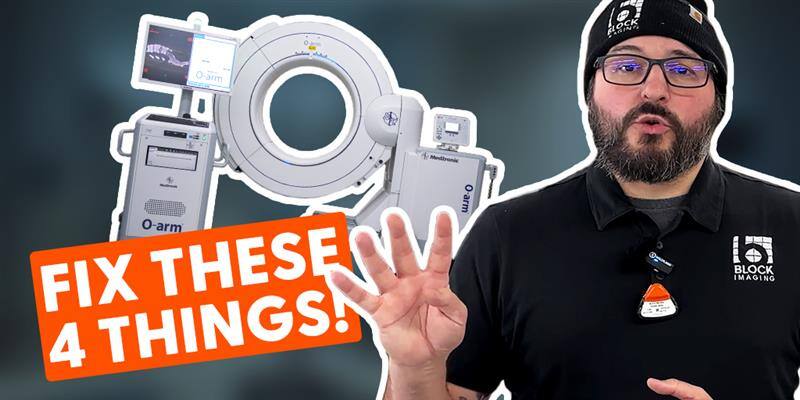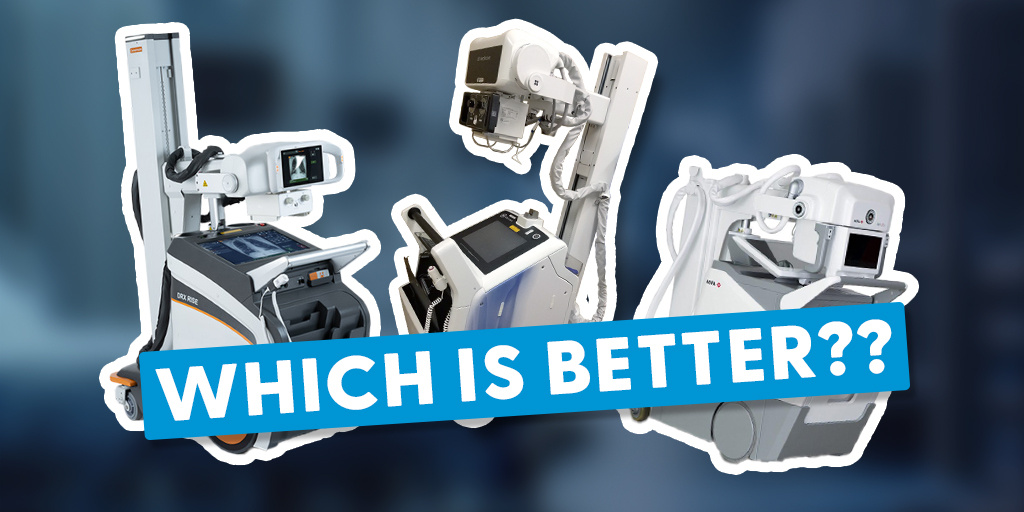
If you've ever purchased or shopped for a service agreement for medical imaging equipment you probably noticed that many of them can't be cancelled. Why is this? If you stop paying for service and your provider stops providing it, what's the big deal?
Believe us when we say it's not just to make things difficult for you. There are several big reasons why many agreements can't be cancelled as well as some hope for those who feel they absolutely must cancel.
Parts Inventory
When a service group begins coverage on a unit, they need to know they can support it with replacement parts. Because of this, they often purchase whole units to have a strong on-hand inventory of parts. These purchases reduce or eliminate the time spent searching for parts and get customers back up and running faster.
With a parts unit purchase, a provider can have a big financial investment from the very beginning. Early cancellation would limit their chance to see a return or maybe even leave them holding the bag on a deep loss.
An example: Say you have a 3-year contract on your Siemens CT scanner. It costs roughly $70,000 per year for your full service contract. Your first service call is fairly simple and only requires a couple hours of an onsite trip. Your next call is a PM that has no issues. At the end of your first year, however, the tube goes bad. You have a Straton Z tube that costs $100,000 to replace, and your full service provider replaces it. Then you decide a month or two after the tube replacement that you would like to cancel your contract. In a case like this, if the provider had a "cancel any time" policy, they would lose about $35,000. It wouldn't take too many situations like this before the cost of service would rise.
Engineering Staff
In addition to having the right parts on hand, a service provider needs to have the right engineers. Just like inventory decisions, hiring decisions are made based on the manufacturers, models, and locations of the equipment that coverage is being purchased for. The last thing a provider wants is to hire an engineer to cover a specific region only to have early cancellations create large gaps in that engineer's schedule. This drives up overhead and eventually leads to higher service prices.
Service Representative Staff
Like engineering staff, sudden cancellations would be problematic in the call center and the admin office. If a service customer signs on for service coverage of multiple systems at multiple facilities, it may become necessary for their provider to expand their capacity by hiring additional representatives. It's very convenient to have, say, two GE MRI’s, three Siemens MRI’s, three Siemens CT’s, and five OEC C-arms at a large hospital all covered by the same provider, paid for on a single bill, and managed by a single rep, but if that customer can cancel at a moment's notice, the service rep could also find themselves out of work. Turnover is an expensive proposition for a company, and too much of it, like the other items we've mentioned here today, makes service more expensive.
What if I NEED to Cancel?
Perhaps you can no longer afford your coverage, or you're planning to sell the unit, or you're changing your business model. Whatever the case, there are situations where continuing in a service agreement no longer makes sense. So, what happens next?
We can't speak to the practices of every provider out there, but we suggest contacting your provider to work out a creative solution. Perhaps the remaining amount of your service agreement could be transferred to one of your other units that is not currently under service. Maybe your provider would be interested in purchasing the unit from you. Don't jump to the conclusion that you're stuck before asking if there's another way.
The Takeaway
Hopefully, now you have a better understanding of the reasoning for non-cancellable service agreements. Behind-the-scenes decisions are made with your equipment in mind; decisions that offer you better service and more uptime, but pose an up-front cost to your provider.
Whether you're shopping for a service provider or already have Block Imaging coverage, if you worry that a sudden change could leave you with a contract you no longer need, give us a call. When these situations arise, Block Imaging looks for other ways to make your full contract term a win-win.

Alyssa Culp
Alyssa Culp is a Service Coordinator at Block Imaging. Her goal is to put service customers first and make a difference in the way they serve their patients. Out of the office she loves cooking, crafting, and exploring the world of craft beer.






